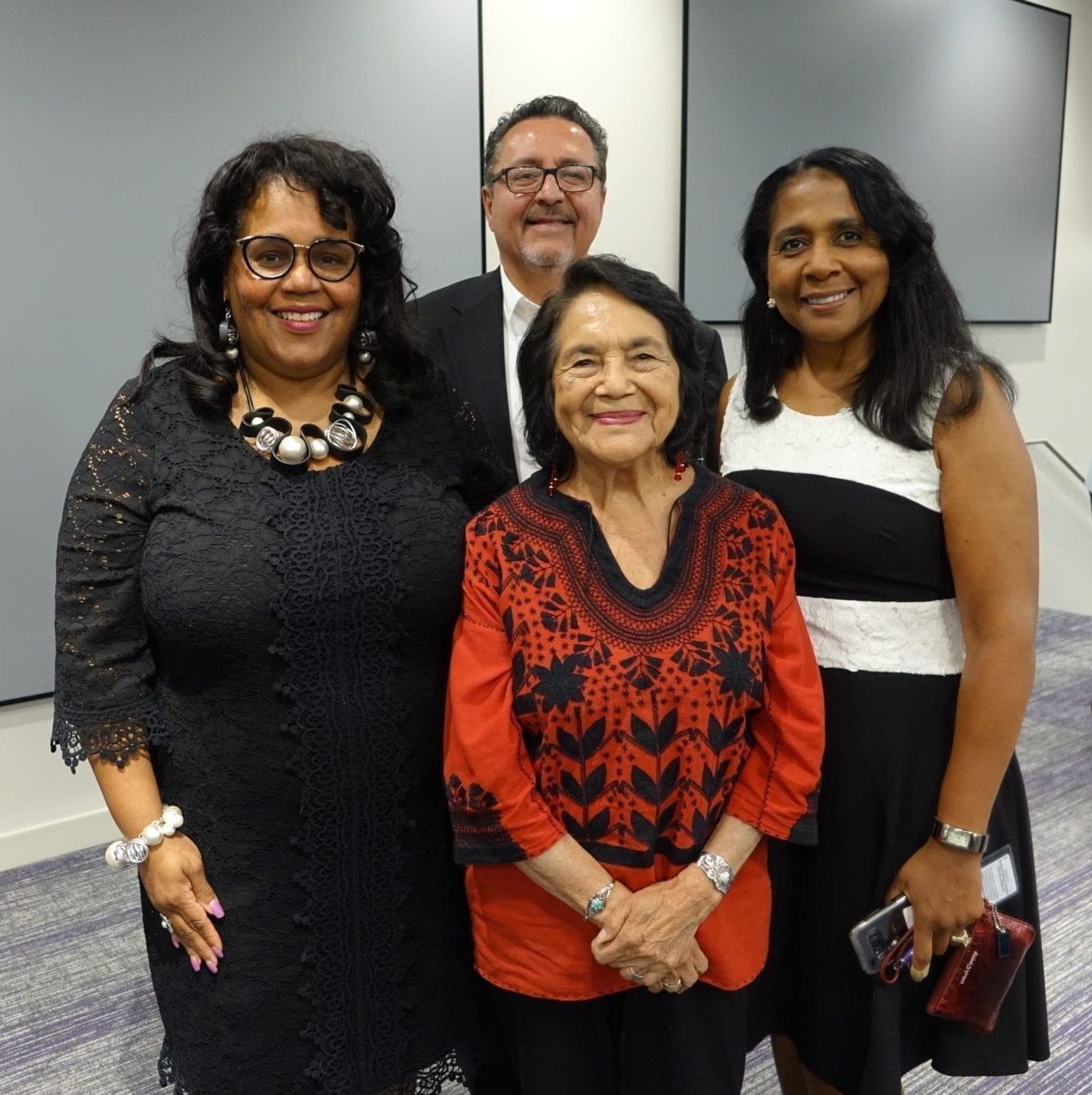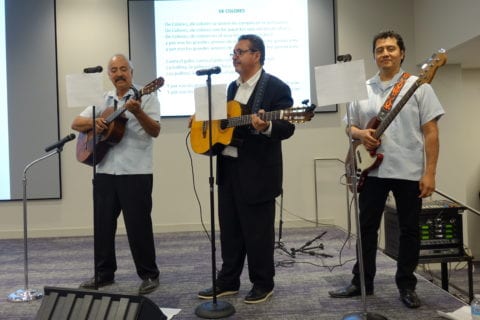Dolores Huerta has fought fearlessly for equal rights for farm workers, women and families. DMU’s Office of Diversity and Multicultural Affairs and the Medical Students for Latino Health Club partnered with the Chrysalis Foundation to host this longtime activist and nationally recognized leader for a special tribute on the University’s campus this fall.

“Dolores Huerta has been a powerhouse for social change for seven decades. She has spent her life fighting to improve the standard of living for farmworkers, to ensure equal rights for women and to call for civil rights for all people,” said Richard Salas, Ph.D., DMU’s chief diversity officer. “She has battled discrimination at all levels.”
According to the Dolores Huerta Foundation website, Dolores found her calling as an organizer while serving in the leadership of the Stockton, CA, Community Service Organization (CSO). During this time she founded the Agricultural Workers Association, set up voter registration drives and pressed local governments for barrio improvements. It was in 1955 through CSO founder Fred Ross Sr. that she met a like-minded colleague, CSO Executive Director César E. Chávez. The two soon discovered that they shared a common vision of organizing farm workers, an idea that was not in line with the CSO’s mission.
As a result, in the spring of 1962 César and Dolores resigned from the CSO and launched the United Farm Workers of America. Dolores’ organizing skills were essential to the growth of this budding organization. She coined the motto ¡Sí Se Puede! – “Yes, we can” – for the association. The first testament to her lobbying and negotiating talents were demonstrated in securing Aid For Dependent Families and disability insurance for farm workers in California in 1963, an unparalleled feat of the times. She was also instrumental in the enactment of the Agricultural Labor Relations Act of 1975. This was the first law of its kind in the United States, granting farm workers in California the right to collectively organize and bargain for better wages and working conditions.

At the event at DMU, several leaders of local organizations shared how Dolores has inspired them in their work.
“They say time changes everything, but that’s a fallacy. We have to change the times,” said Joshua Barr, J.D., M.B.A., director of Des Moines Civil and Human Rights. “Dolores and César E. Chávez looked at their community and saw there was something wrong, so they organized people power to fight for change.”
Now 89, Dolores continues to work tirelessly developing leaders and advocating for the working poor, women and children. As founder and president of the Dolores Huerta Foundation, she travels across the country engaging in campaigns and influencing legislation that supports equality and defends civil rights. She often speaks to students and organizations about issues of social justice and public policy. The nonprofit foundation recruits, trains, organizes and empowers grassroots leaders in low-income communities to attain social justice through systemic and structural transformation.
At the campus event, Dolores recalled how a farm workers’ march to Sacramento grew from 70 people to more than 10,000, and how a boycott of California grapes, in protest of poor wages and working conditions for grape workers, grew from 40 farm workers to 17 million people who stopped buying the produce.
“When we think of all the challenges we have today, with racism, misogyny, homophobia, the climate deniers and those who look down on working people, we think, ‘How can we possibly challenge this?’ Remember, it just takes a few of us to reach out to the multitudes, and we can make it happen,” she said. “We all have to get involved.”

Dolores has been honored numerous times for her tireless advocacy. Inducted into the California Hall of Fame in March 2013, she received the Eleanor Roosevelt Humans Rights Award from President Bill Clinton in 1998, the Ohtli Award from the Mexican government and the James Smithson Award from the Smithsonian Institution, among others. Ms. Magazine named her “One of the Three Most Important Women” of 1997, Ladies Home Journal included her among its “100 Most Important Women of the 20th Century” and nine universities have bestowed her with honorary doctoral degrees. In 2012 President Barack Obama honored her with the Presidential Medal of Freedom, the highest civilian award in the United States. She also was featured in the 2017 PBS documentary “Dolores: Rebel. Activist. Feminist. Mother.”

